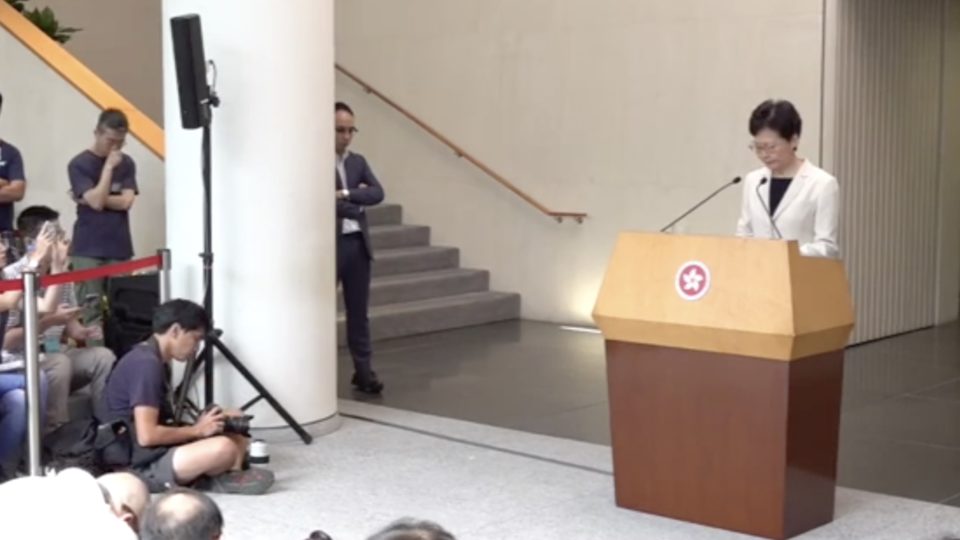Hong Kong’s political impasse is one of Beijing’s making, with the central government effectively hamstringing Chief Executive Carrie Lam by forbidding her from making any concessions to protesters, according to an exclusive report from Reuters.
The story, published today and based largely on anonymous sources, said that Lam had submitted a report to the central government at some point prior to Aug. 7 assessing the protesters’ demands and suggesting that two — withdrawing the extradition bill that first sparked the movement and launching an inquiry into the unrest — were politically feasible and might restore calm.
Beijing, however, slammed the door on the suggestion, according to a senior Hong Kong official, and also shot down the other three demands on the table, which included legal amnesty for arrested protesters, the retraction of the characterization of protests as “riots,” and genuine universal suffrage.
“They said no” to all five demands, said another source with close ties to the Hong Kong government. “The situation is far more complicated than most people realize.”
A third source, identified as a senior Chinese official, said that not only had Beijing rejected the demands, it faulted Lam’s administration for not taking more initiative.
In a statement to Reuters, Lam’s office said the government had tried to address protesters’ demands, but sidestepped the question of whether they had submitted the report or received instructions from Beijing.
Lam has also refused to answer the question publicly, including in a testy exchange with a Reuters journalist during a heated press conference earlier this month in which the reporter pointedly asked whether Lam had the “autonomy to decide to withdraw the bill.
“In other words, have your hands been tied by Beijing… or is this a point of political pride on your part?” the reporter added.
As Lam began by insisting that she had answered the question before, rather than offer a simple yes or no, the reporter pressed again, saying she had “evaded this question on numerous occasions.”
As Lam again began to offer an explanation echoing the central government’s stance that it still had faith in her administration, the reporter interjected again, insisting that she answer the question.
A moderator finally interceded, but the back and forth continued, and Lam finally concluded the exchange, firmly stating, “I have already answered the question,” though in fact, she had not.
The report, if accurate, sheds light on the extent to which Beijing is the ultimate arbiter of Hong Kong policy-making, even in spite of the city’s high degree of autonomy under the “one country, two systems” framework.
It also raises questions as to how the city will navigate its way out of the worst political crisis in decades if neither side is willing — or able — to give ground.



